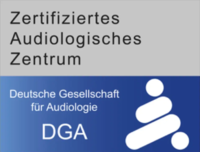The function of the nasal septum is to divide the nasal cavity into two halves. This function is 100% dependent on the form, so its change inevitably entails difficulty breathing. This is not the only problem for people with a deviated septum. Due to the aeration impairment of the paranasal sinuses and the middle ear, the frequency of otitis media and sinusitis increases, nasal turbinate hypertrophy develops, hearing may deteriorate, vasomotor rhinitis often develops, and the frequency of headaches also increases. It is necessary to repair the nasal septum to solve this problem. This is where plastic surgery can help. You can undergo your treatment of deviated nasal septum in Germany and get reliable results with minimal risk of complications. You are welcome to use the Booking Health service to find out treatment costs at German hospitals and choose a medical care program for your preferred dates.
Content
- Septoplasty for nasal septum deviations
- Recovery after surgical repair of nasal septum deviations
- Where to seek medical help to undergo nasal septum deviation repair surgery?
Septoplasty for nasal septum deviations
Septoplasty (septal surgery) is used in plastic surgery to reshape the nasal septum. This is an operation that is performed through the nostrils, so no skin incisions are made. All scars remain inside the nose, so they do not worsen the person's appearance.
Unlike rhinoplasty (external nose reshaping), septoplasty is not intended to improve appearance. Its task is to improve the function of external respiration. However, many Plastic Surgery Centers perform these two interventions simultaneously.
Septoplasty refers to the entire group of surgeries to repair the nasal septum. In fact, this part of surgery includes dozens of different operations that differ in the method of their performance. In plastic surgery, the most popular are Killian's submucous septum resection and Voyachek's circular resection.
The general principle of septoplasty is that the doctor removes the area of curvature of the nasal septum, removes bone and cartilage fragments, and aligns the septum. If perforation areas (holes) remain, then they will be covered with pieces of cartilage.
In recent years, less traumatic and safer operations have been developed. The rehabilitation period becomes shorter and easier. Doctors in Germany are increasingly using microsurgical and endoscopic techniques.
Recovery after surgical repair of nasal septum deviations
Following the operation, nasal tamponade is necessary. It lasts from several hours to 8 days. In the classical version, a gauze tampon is placed in the nose, although this old method is not usually used in Germany due to postoperative discomfort and the risk of complications.
In modern surgery, elastic tamponade with synthetic materials is used instead of gauze tamponade, as are alginate films, aerosols, foams, gels, adhesives, and hydrogels. Intranasal splints are also often used in Germany.
Where to seek medical help to undergo nasal septum deviation repair surgery?
You can undergo high-quality, modern, sparing, and safe treatment of deviated nasal septum in Germany. The Booking Health website presents the best German hospitals that admit foreign patients. On the website, you can also find out the cost of treatment in Germany, compare treatment costs at different medical centers, and choose a medical care program.
The Booking Health specialists will help you find a hospital in Germany where doctors specialize in the treatment of nasal septum deviations, use advanced techniques, and achieve excellent results. We will take care of all the arrangements for your treatment in Germany and reduce the waiting time for the start of your treatment. And what is more, the cost of the operation will be lower for you due to the absence of taxes for foreign patients.
Authors:
The article was edited by medical experts, board certified doctors Dr. Nadezhda Ivanisova and Dr. Sergey Pashchenko. For the treatment of the conditions referred to in the article, you must consult a doctor; the information in the article is not intended for self-medication!
Sources:
JPRAS - An International Journal of Surgical Reconstruction
Medical News Today
Medscape




















